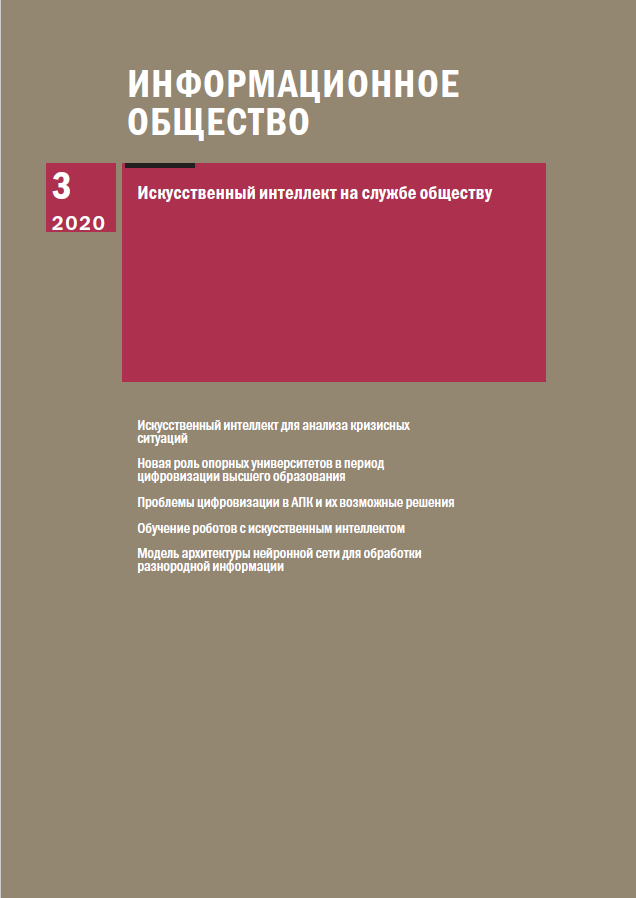The third issue of the journal for 2020 has been published. It is completely open to reading on a new digital platform (in Russian, with metadata and abstracts in English).
The article by Inna Andreyanova from Pskov State University shows the key problems and prospects of digital transformation of higher education.
The active introduction of ICT into vocational training provides a mechanism for the digital transformation of the educational system. An article by Anna Rozhkova (Pskov State University) is devoted to the development of digital rights and competences of workers in the regions of Russia; alternative forms of employment (temporary, part-time, distance, e-employment and self-employment) are analyzed.
The work of a group of authors from the Institute for System Analysis of Dmitry Chereshkin, Grigory Roizenson and Vladimir Britkov analyzes artificial intelligence (AI) methods from the point of view of their applicability for risk analysis in socio-economic systems (SES). It is proposed to link SES properties, AI methods, as well as risk measurement methods within the framework of building a unified classification.
In the work of Felix Ereshko, Viktor Medennikov and Vladimir Kulba, a scientific approach to the formation of a unified digital platform of the agro-industrial complex based on an appropriate mathematical model is considered. As part of mathematical modeling of the digital platform of the agro-industrial complex, digital standards were obtained that are common to all sectors of the economy. The proposed unified digital platform and digital standards represent cross-cutting management technologies in the agro-industrial complex.
Andrey Kuznetsov and Elena Nikitina (Perm State Research University) consider some problems of Russian universities in connection with the massive use of information technologies and the transition to the digital economy and information society.
Evgeny Bryndin (Research Center “Natural Informatics”, Novosibirsk) present a work, which shows that the implementation of artificial intelligence by a robot is based on the criterion of preferences for accumulated professional and behavioral creative innovative competences and skills.
And, finally, in the work of Alexei Potemkin (Academy of the Federal Security Service, city of Orel), a neural network architecture is proposed for processing heterogeneous information. The proposed architecture includes separate inputs for textual, graphic, tabular, graph and meta information. An experimental study of the efficiency indicators of the developed architecture for solving the problem of identifying information operations on the Internet is carried out.
